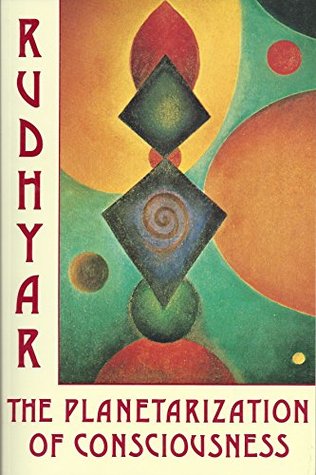*

PREFACE
The
Planetarization of Consciousness is a work of extraordinary lucidity and
wisdom, the most compelling new book in the fields of psychology and
metaphysics that I have read in some years. Although it is written in
language within easy reach of the serious lay reader, it offers profound
insight into the most urgent problems confronting humanity in this age.
Rudhyar's vision stretches from the inner fastness of the existing self
to the organic being of humanity to the whole of cosmic reality.
The
author has developed three themes which are of special value to me.
First, he demonstrates with simple eloquence the essential unity of
being. Second, he reveals the process of change at work in the rhythms
of being. And finally, he sees the future of mankind in terms of an
organic planetary civilization which will represent a wholly new stage
in the evolution of humanity. Rudhyar has a rare
grasp
of the newness of this coming order. Others have stressed its continuity
with the past, and this is well and good; but I have seldom seen so
persuasive an evocation of the sense in which this new civilization will
also, in fact, be
new.
— Warren
Wagar,
Professor
of History,
University of New Mexico.
PREFACE
Oliver L. Reiser
This
new book by Dane Rudhyar which comes as the culmination of his life-long
meditations, will be held in no small measure to satisfy a growing need.
What is required today, and even more so in the years ahead are scholars,
writers and thinkers — men and women of vision and wisdom — who can do the
necessary pioneering work in unifying the sciences, the arts and the
religions of mankind. Mr. Rudhyar is a modern prophet who proclaims his
vision of the "new being," to employ Paul Tillich's language.
Essentially a creative artist cast in the Renaissance mold, Mr. Rudhyar
succeeds in fusing into one purview the vision of the poet, the mystic,
the musician and theologian. To encompass this synthesis in our time and
for our world requires considerable knowledge of Eastern and Western
civilizations, and in this respect, Mr. Rudhyar is not found wanting.
The
creative thinker is always in a dilemma. Like Professor Whitehead, he
faces the alternatives of using an old terminology to convey new ideas,
thus risking misinterpretation, or he must invent new terms for his mutant
ideas, and these will defy facile comprehension. To steer a middle course
is the path of wisdom, and this Mr. Rudhyar achieves in a graceful and
flowing style. Readers of his previous writings will recall that Mr.
Rudhyar's world-view at some points resembles C.J. Jung's approach to
symbolism and depth psychology, but his cosmic and metaphysical outlook
now covers a much
wider field than the Swiss psychologist allowed himself to envision.
Indeed, Mr. Rudhyar's conceptions should not be steamed and pressed into
antecedent patterns, for this would diminish the components of
originality. For example, the notions of the "symbol,"
"truth" and "values" — the ways in which they emerge
and their places in the cyclic processes of nature — all demand a new
frame of reference.
Fundamental
to Rudhyar's entire metaphysics is the notion of time as the cyclic rhythm
of the world symphony. Thus this philosopher, avant garde composer in his
own right, restates the Pythagorean insights of antiquity. This is
"time-binding" at its best. The rhythmic cyclicity in turn
prefigures and proclaims the coming of the "man of plenitude,"
the "global man," who embodies the "surge of
potentialities" which moves toward the coming planetarization of
humanity.
Such
a comprehensive sweep is seldom compressed in a single volume. Well might
our professional academicians, technicians in those "factories of
knowledge" which the large modern universities have become, study
this volume as a model of what a philosophy can be and do when it is
devoted to the sum-total of human achievements in the "sciences"
and the "humanities." Here we have clear anticipations of how
the "two cultures" can be orchestrated into the forms of unity.
It is hoped that Mr. Rudhyar's projected synthesis may serve as an impetus
to a coming planetary civilization.
OLIVER L. REISER
Emeritus
Professor of Philosophy, University of Pittsburgh.
Author
of: The Integration of Human Knowledge,
Cosmic
Humanism,
and
This Holyest Erthe.
The
Planetarization of Consciousness


